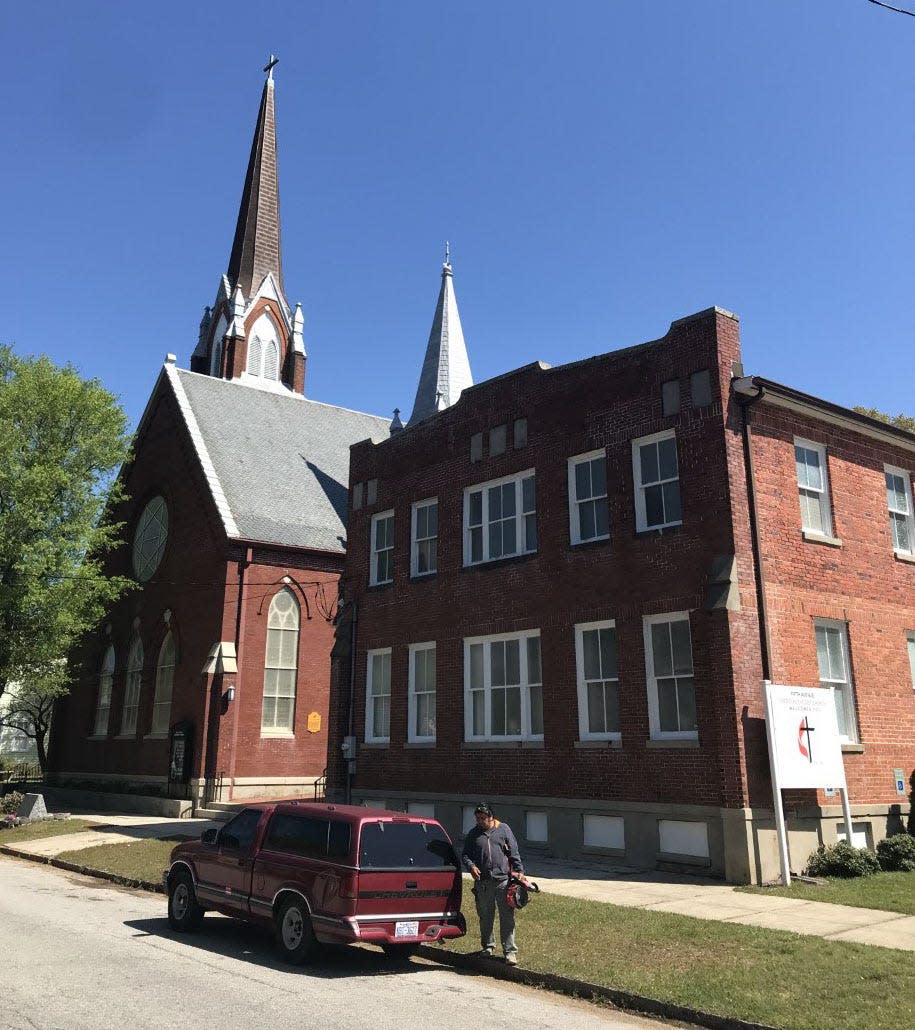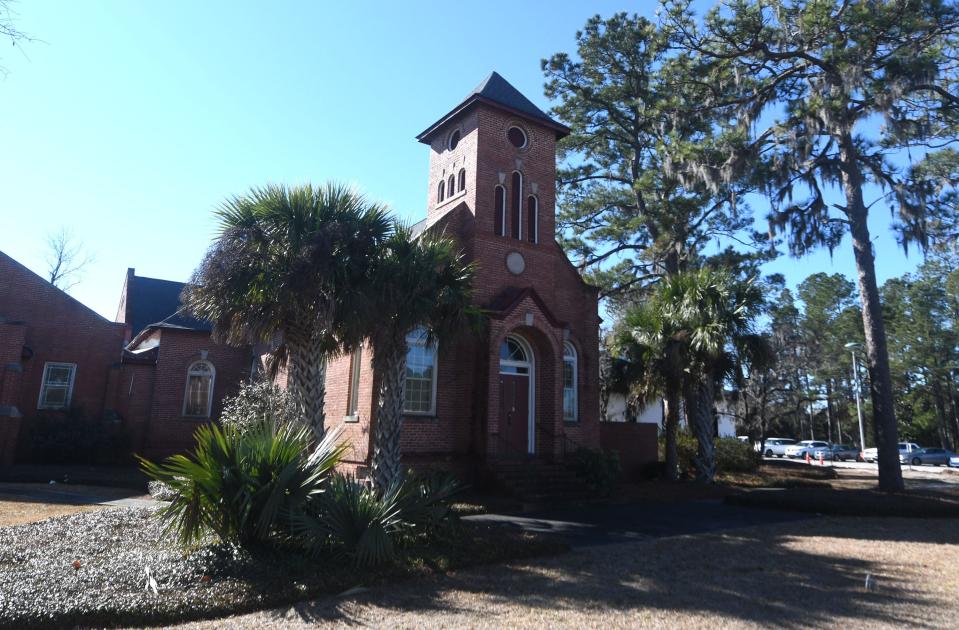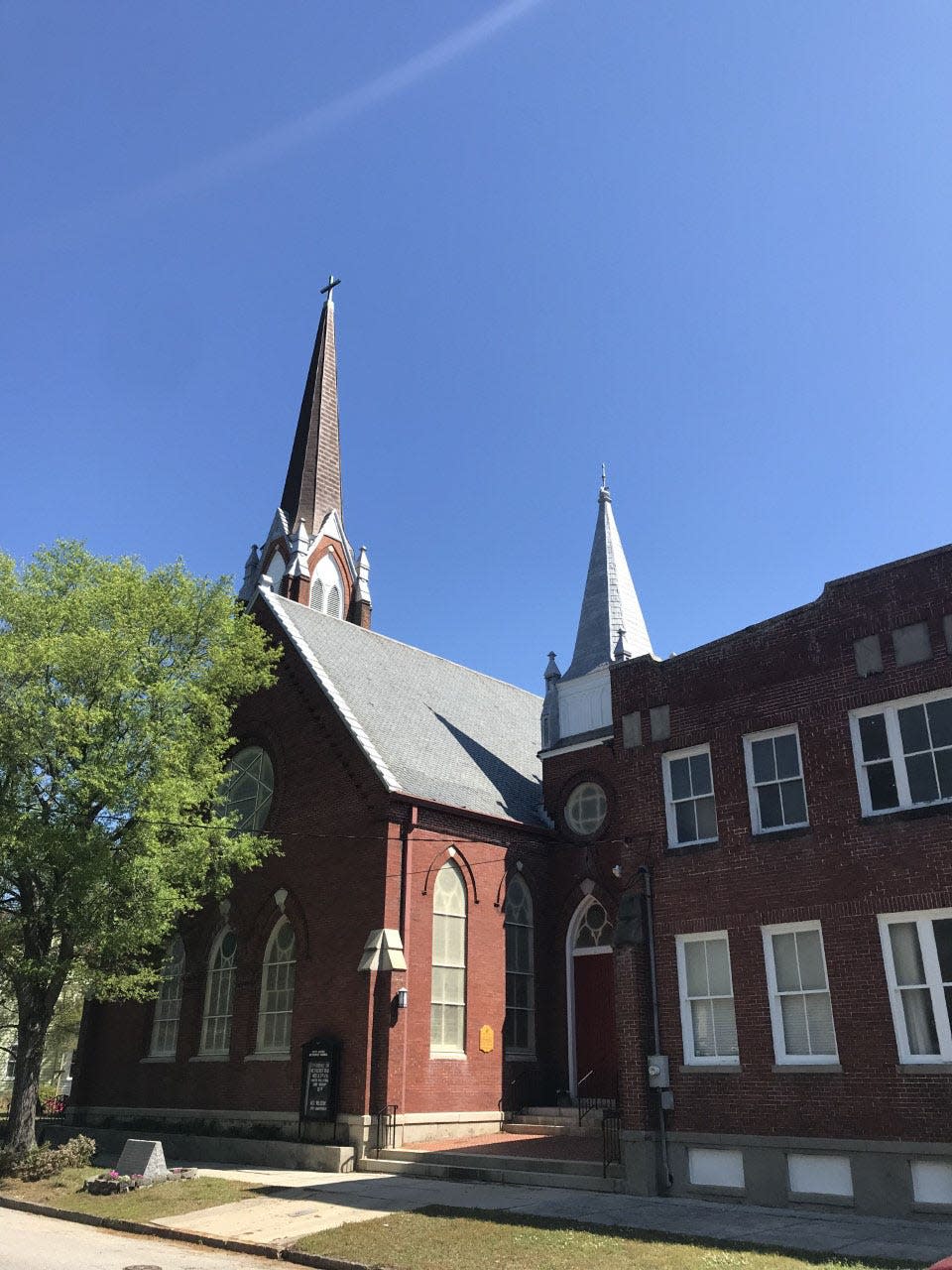Going 'less Sunday-centric' or staying traditional? How church in Wilmington is evolving

Is Wilmington still a churchgoing community?
For almost all of Wilmington's nearly 300 years, there would not have been much need to ask that question. But times change, and Wilmington's church landscape in 2023 is probably different than anyone would've pictured a quarter of a century ago.
In national terms, 2020 marked the first year since the Gallup Poll started asking in 1937 that less than half of Americans (47%) said they were members of a church, synagogue or mosque, down from 70% in 1999.
"The U.S. is clearly a less religious nation than it has been in the past, given steep declines over the past two decades in religious identification, church membership and church attendance," reads a Gallup article from December of last year.
Gallup did report that "the U.S. remains a religious nation," with about 80% claiming a religious affiliation and 70% identifying as Christian in 2022.
For a significant number of people in Wilmington, however, whether or not it's still the majority, church remains important. But while there are no hard numbers on church attendance in Wilmington, there are tell-tale signs it's been a tough time. On top of declining memberships, some churches incurred damages from Hurricane Florence in 2018. Then, in 2020, COVID hit, forcing churches to cancel services when many were already struggling with membership.
More recently, a downtown Wilmington church that just turned 175 years old will close.
It's another signal that the state of church in Wilmington is much like everywhere: Some keep bonds with tradition, some have closed or merged with others, and non-denominational churches remain popular.

A Methodist split
Even before COVID, several longtime local churches had closed, including Pearsall Memorial Presbyterian Church off Market Street, which opened in 1913. The church had suffered hurricane damage and was down to about 15 active members when it held its last service in June of 2019. (After being sold, the church was renovated by PBC Design + Build, which moved into the 3902 Market St. space in September of 2020 and made the renovated fellowship hall its new workspace.)
More: Church in Wilmington Historic Market Street church, fellowship hall saved from demolition
Then, in March, a surprising announcement. The North Carolina Conference of The United Methodist Church, citing a dwindling membership, announced the closure of Fifth Avenue United Methodist Church, which had just celebrated its 175th anniversary last year and holds services in a stately brick structure that dates to 1890.
The church's impending closure — final services are scheduled for April 9, which is Easter Sunday — stunned the congregation, including Susan Godwin Long, who's been going to Fifth Avenue Methodist for 76 years.

"By that, I mean all my life," Long said. "My family has been in that church for five generations.
"I was married at that altar, baptized there. My children were christened there. For me, that church is where the Lord lives."
It certainly has a long history in Wilmington, as a bright yellow plaque from the Historic Wilmington Foundation on the front of the church attests.
The closure came as even more of a shock to church members, Long said, since they thought they were in the process of "disaffiliating" from the N.C. Conference of the UMC.
"There's no way to get across how awful this seems to us," she said.
The conference is losing about a third of its churches in the state over disagreements about whether LGBT weddings can happen in those churches. Long, who decries what she calls the rise of "politics in the pulpit," said membership has steadily declined at Fifth Avenue since its height in the late 1960s and is down to about 100 today.
"We are an inner-city church," Long said. "People have moved to the suburbs. I live in Burgaw," but she comes in to Wilmington each week for church. She remembers when many church members walked to services each Sunday. Now only a couple do.
In a news release, the N.C. Conference of the UMC said it plans a "rebirth" of the Fifth Avenue church property after it closes, "where the location and church space can meet basic needs for unsheltered people, become a gathering space for senior adults and persons with disabilities, provide shelter and assistance following major storms, and be a welcoming space for worship and study for one or more new United Methodist faith communities."
Long allowed that "the Lord does work in mysterious ways. This is not the end of Fifth Avenue Methodist. I hope that everything is done to preserve that sanctuary and that building," she said. "It is my hope and prayer that it remains a valued part of our historic district."
Church in Wilmington: These 9 churches helped shape Wilmington's history
The non-denominational rise
Of course, churches closing in Wilmington is nothing new. It's been happening for decades, as has the opening of new churches.
Across the country, the rise of the non-denomenational "megachurch," along with contemporary worship services featuring Christian rock and gospel music, as well as state-of-the art projections and production values, have taken hold.
Port City Community Church, sometimes called PC3, was founded in Wilmington in the late '90s and quickly became one of the area's biggest churches. It also has campuses in Leland and New Bern, although a previous location in Jacksonville has since closed.
Mike Ashcraft is the senior pastor at PC3. He said that, numbers-wise, they've still not regained pre-COVID levels of attendance.
Related content: Christ in the time of corona: Wilmington preachers face church, personal challenges during pandemic
"We still have people coming back every week who, it's their first week back since COVID," Ashcraft said. Lower attendance is "true everywhere, and it's true for us."
Still, Ashcraft said, a church shouldn't define itself by its numbers.
"It's flattering when people think that, just because you're big, you're successful," he said. "But the measure of a church is the way it serves and impacts the community."
After things began to reopen from the pandemic, "Our mantra was, 'We don't want to go back to normal.' We just want to move ahead" to what's next.
Post-COVID, "the online capacity has stuck," Ashcraft said, with many people still more comfortable attending services virtually. Beyond that, however, the pastor said the pandemic has inspired "a big philosophical change" at PC3. Things are "less Sunday-centric," he said, as he and other church members have worked on creating a process "where people could participate (in meeting) needs for people in our city."
"We're not trying to get back to pre-COVID numbers," he added. "We're trying to connect to people more personally," in part by partnering with nonprofits "that do meaningful work" helping the community.
"The idea of a big, large gatherings is not going to continue to bring people in," he said, and in a way he finds that "refreshing. It allows us to move into new places and directions ... As things get shaking in the world again, we have a unique opportunity, not to give answers but to give hope, and some kind of tangible response to the brokenness in the world."
'Living in both worlds'
Many, even most, of Wilmington's historic churches are still hanging in there.
Wes Hunter is the senior pastor as Masonboro Baptist Church in Wilmington, which was founded back in 1856.
"We have families who can trace their roots back to the people who started this church," he said. Four generations of his own family go there, including his grandmother and his children. Some long-timers refer to the sanctuary that was built in 1982 as the "new chapel."
Hunter joked that they put some pews from the old chapel, which still exists, into an area in the new chapel, and people "were sitting in the pews complaining about how hard they were."
Hunter was raised in Wilmington, and "the church I grew up in isn't there anymore," he said. Well, the building remains, but the congregation of Sunset Park Methodist Church merged with Grace Methodist downtown back in 1998.
Citing a statistic from 2022, Hunter said in the United States, 92 percent of churches average an attendance of 250 or less each Sunday. Masonboro has about 150 people each week, he said.
With numbers like that, Hunter said, especially for churches that own and maintain large and/or multiple buildings, "It's hard to support the whole infrastructure. The infrastructure can become a burden. We're not completely crushed by that like some are, but we do struggle with it."
Having a day care service attended by over 100 young children helps.
Another way that many older churches like Masonboro have adapted as a way of appealing to both longtime and newer, younger members is by offering two services each Sunday, usually 9 a.m. "contemporary services" with more modern music in addition to the 11 a.m. "traditional" services.
"Contemporary worship," Hunter said, "really kicked off in the '90s. Some people have never known any other kind of church."
"We are very much living in both worlds," he added. "There are some churches that are built to be new, oriented to a stage show with high production values. We're not that. We're not trying to be that. We're not going to be a place you can get lost and blend into the background and watch the show."
In some ways, Hunter said, the future for church in Wilmington is uncertain. And while he doesn't know what it's going to look like, he knows it's going to be there in some form.
"I don't know what the structure looks like 10 years from now. It's going in the wrong direction in terms of numbers," he said. "But there's always going to be people who crave that community."
'I'm not discouraged at all'
Dr. Robert Bayley has had an uncommon perspective of church in Wilmington over the past 30 years.
Bayley retired from his role as the interim pastor at St. Andrew's Covenant-Presbyterian at the beginning of the year, but he has led multiple congregations in Wilmington since 1992, including at Myrtle Grove Presbyterian Church in Monkey Junction, the Church of St. Peter the Fisherman in Sunset Park, and at Westminster Presbyterian on Kenwood Avenue, which closed in 2018.
Bayley said he regularly attends services at two of downtown Wilmington's largest churches, St. James Episcopal and First Presbyterian, and that both have sizable and active congregations.
In addition to the non-denominational evangelical churches in Wilmington that do well, Bayley said, "along with numerous mainline congregations — Presbyterian, Methodist, Lutheran, Episcopal and Baptist — that are also thriving," some of the biggest Sunday crowds in Wilmington can be found at St. Mary, St. Mark's and Immaculate Conception Catholic churches, which he called "by far the largest in terms of both members and attendance."
Bayley said he was recently asked by a younger pastor if he's worried for the future of the church.
"I told him, 'Absolutely not,'" Bayley said. "I'm not discouraged at all. God has been raising up younger generations of believers for 2,000 years and today is no different. Configurations are changing, but the reality remains the same as people place their trust in Jesus Christ and form the church of today and tomorrow."
This article originally appeared on Wilmington StarNews: As Wilmington NC changes and evolves, so does its church community

